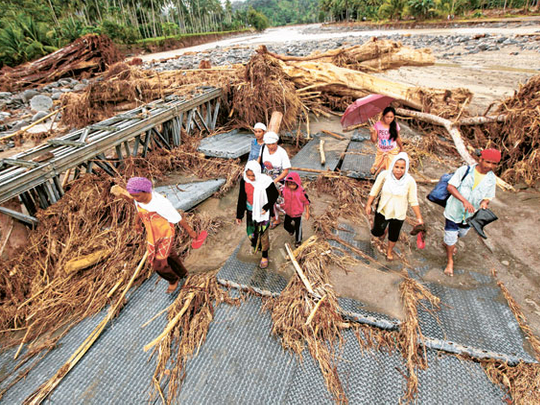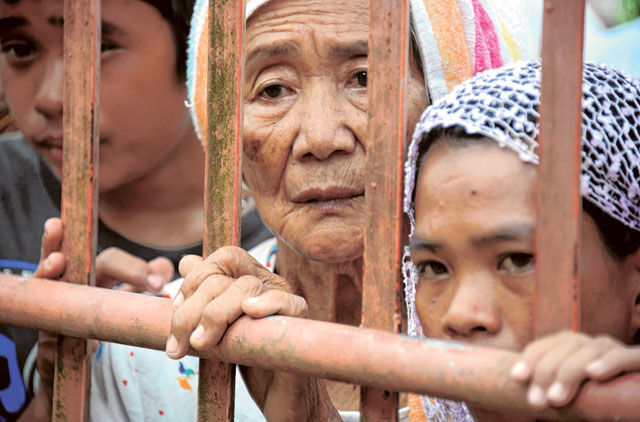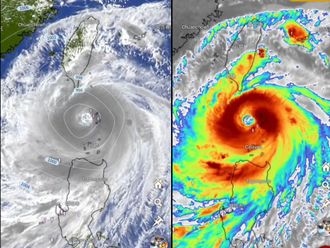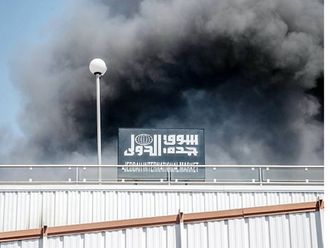
Manila: Fishermen, firefighters, policemen and sailors were answering the call to help out in areas of central Philippines following reports that bloated bodies of victims of typhoon Washi were being swept into coastal villages or adrift at sea.
The death toll touched 1,200 with more bodies found in some bay areas 100 kilometres from the south, where the disaster struck.
"Now our search comprises a very wide area," National Disaster Risk Reduction and Management Council (NDRRMC) executive director Benito Ramos, who has been in Cagayan de Oro since Sunday, said in a radio interview yesterday.
Members of the Navy, the Coast Guard, the Bureau of Fire Protection were being assisted by local fishermen who were told to help because corpses were spotted as far away from the south as Camiguin and in Bohol, central Visayas, Ramos said.
"If we keep on finding dead bodies every day, we will continue with the search and retrieval operations even beyond New Year," said Ramos.
Identification process
Fingerprints and dental checks were being conducted on some 150 unidentified bodies.
The toll from the deadly storm had reached 1,249, said Ramos. Other sources told Gulf News that the number of missing people alone could "easily reach 2,000".
The government has initiated resettlement plans for about 600,000 displaced people, including the distribution of 70,000 pesos (Dh5,833) worth of construction material for the homeless, officials said, adding the construction programme was scheduled to end before the opening of classes in early January.
"By next week, we will start building transition shelters and bunkhouses near proposed resettlement areas and relocation sites in Cagayan de Oro and Iligan City. The target is to finish these in the first two weeks of January, so families can find some personal space that they can't get at evacuation centres," social welfare secretary Corazon Soliman said in a radio interview.
"We are looking at and exploring the possibility of using container vans as makeshift houses," said Soliman.













